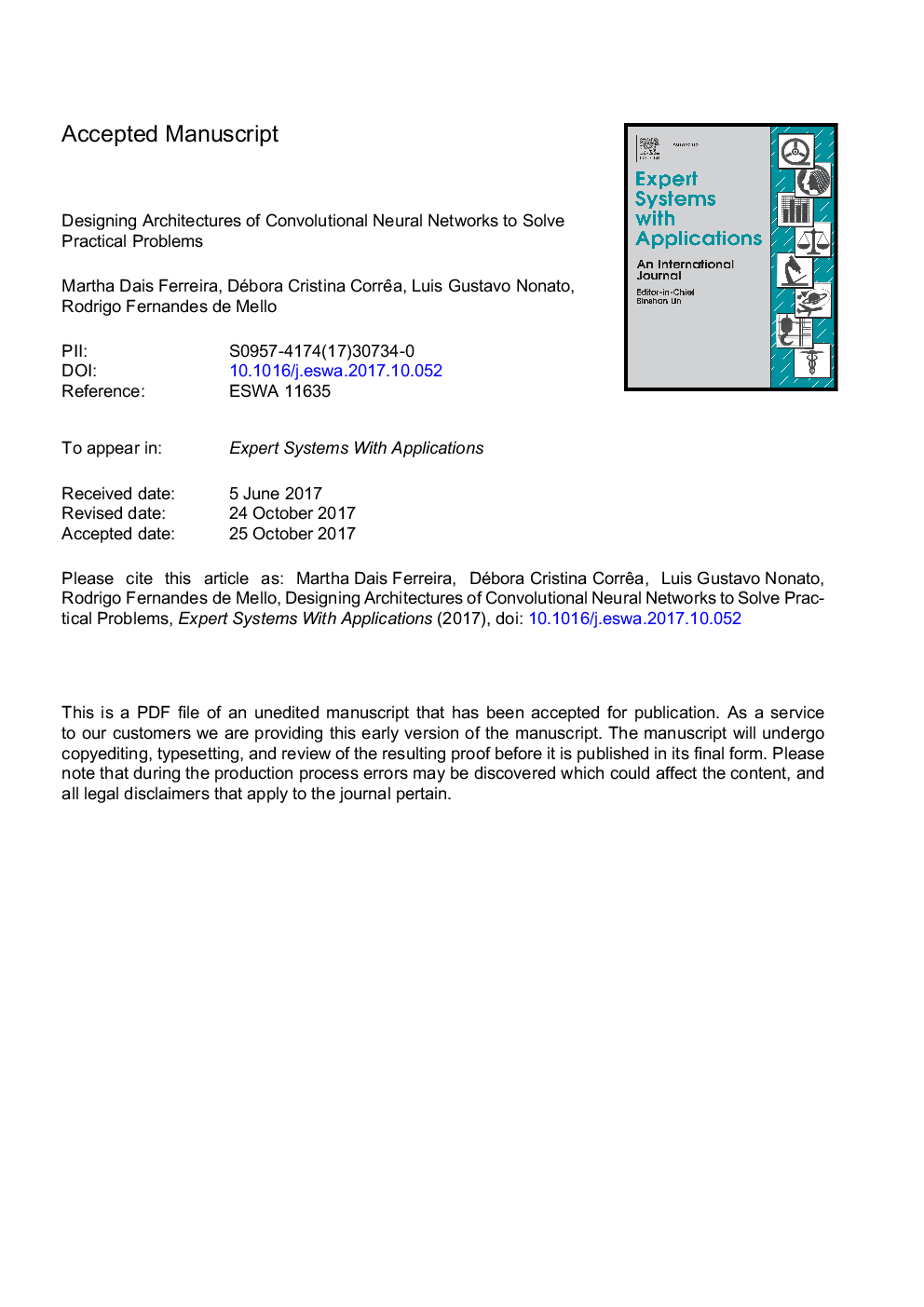| Article ID | Journal | Published Year | Pages | File Type |
|---|---|---|---|---|
| 6855354 | Expert Systems with Applications | 2018 | 29 Pages |
Abstract
The Convolutional Neural Network (CNN) figures among the state-of-the-art Deep Learning (DL) algorithms due to its robustness to support data shift, scale variations, and its capability of extracting relevant information from large-scale input data. However, setting appropriate parameters to define CNN architectures is still a challenging issue, mainly to tackle real-world problems. A typical approach consists in empirically assessing different CNN settings in order to select the most appropriate one. This procedure has clear limitations, including the choice of suitable predefined configurations as well as the high computational cost involved in evaluating each of them. This work presents a novel methodology to tackle the previously mentioned issues, providing mechanisms to estimate effective CNN configurations, including the size of convolutional masks (convolutional kernels) and the number of convolutional units (CNN neurons) per layer. Based on the False Nearest Neighbors (FNN), a well-known tool from the area of Dynamical Systems, the proposed method helps estimating CNN architectures that are less complex and produce good results. Our experiments confirm that architectures estimated through the proposed approach are as effective as the complex ones defined by empirical and computationally intensive strategies.
Keywords
Related Topics
Physical Sciences and Engineering
Computer Science
Artificial Intelligence
Authors
Martha Dais Ferreira, Débora Cristina Corrêa, Luis Gustavo Nonato, Rodrigo Fernandes de Mello,
